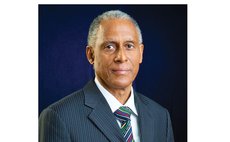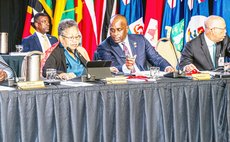Who is at Fault?
Psychologists speak of the interesting concept of "Locus of Control". According to Wikipedia, Locus of Control refers to:
…the extent to which individuals believe that they can control events that affect them. … A person's "locus (Latin for "place" or "location") is conceptualised as either internal (the person believes they can control their life) or external (meaning they believe that their decisions and life are controlled by environmental factors which they cannot influence).
Hence, people who have a high internal locus of control view themselves as being in control of events in their lives. They see themselves as agents in whatever outcome that follow their actions. In short, events in their lives are shaped by their very own actions. The simplest example is one from school. Students with a high locus of control who take a test and do not perform well, will tend to explain their performance in terms of their own lack of preparation rather than the teacher's inability to teach. If they performed well, they would also see their accomplishment in terms of their ability to study and/or grasp the necessary concepts. Applying a similar school example to the students with an external locus of control, one can guess that poor performance in the test is attributed to the environment, for example, difficult test questions. If they performed well, they explain it by the teacher's leniency or possibly plain and simple luck.
I am not going to delve very deep into the sometimes impenetrable theory of locus of control. Indeed, I want to keep it simple since I do believe it is instructive even without becoming too academic about it. In lay person's terms, locus of control is about a sense of responsibility or a lack of it. There are hardly any shades of grey where this particular concept is concerned, once we simplify it for general consumption.
I believe it is also necessary, as a point of departure, to make the point that it is quite possible to teach our children to adopt or embrace either an internal locus of control or an external locus of control. Psychologists may not necessarily agree with this position but I tend to argue from a sociological perspective and I do believe, for the most part, in the importance and weight of the social and therefore of the socialization process. The foregoing is actually good news, in my opinion, since it is within our control (internal locus of control) whether our children will grow up taking responsibility for their own actions, and improving on their skills and capacities; or they will grow up blaming the world (external locus of control) for whatever happens to them, not allowing themselves an opportunity to modify their actions since in their minds, the environment determines everything and hence they give in to determinism and fatalism or defeatism.
Unfortunately and tragically, many adults have not been liberated from that external locus of control and hence they tend, more often than not, to see failure or wrongdoing as the "fault" of others. They also have an extraordinary but uncanny ability to switch to an internal locus of control when it suits them. Hence, when they are successful, they claim or even usurp all the credit. Denis Waitley, an American motivational speaker and writer, consultant and best-selling author, contends, quite rightly, "A sign of wisdom and maturity is when you come to terms with the realization that your decisions cause your rewards and consequences. You are responsible for your life, and your ultimate success depends on the choices you make." Those who engage in deviant behaviour (If truth be told, I sometimes no longer know what is wrong and what is right given what I hear these days coming from adults who ought to know better) and then seek to blame everyone else, are very immature at best, and vulgar or dishonest, at worse.
An external locus of control is a severe shortcoming. I would not be surprised that if the necessary psychological tests were to be conducted on many political leaders, one would find that most dictators possess that psychological characteristic or attribute - an external locus of control. When Muammar Gaddafi, former Libyan strongman, was being brutalized and humiliated by those whom he had oppressed for years, he asked faintly (Poor thing! I really did feel sorry for him since, when all the dust had settled, he was simply a 69 year old helpless and vulnerable man), "What have I done to you?" This is a sure sign of an external locus of control. The man who called people rats, stray dogs, cockroaches, etc. and who had, inter alia, jailed, murdered, mutilated, restricted the freedom of his opponents, asked this question not simply out of fear, but because he may have really believed that it was the environment which dictated his actions and that he was not responsible.
As adults, when we take certain actions, we must take responsibility. Indeed, when our adolescent and very young children misbehave or are caught committing delinquent acts or even crimes (for example), we must also take responsibility. Very often, we blame the youth but I do not understand how we arrive at blaming them when our own actions are certainly not beyond reproach. We seem to forget that the young people are observing the adults. They witness adults lying; cheating; stealing; committing adultery; hating; covering up for the wrongs of their friends; disrespecting each other; wearing their pants half way down thus impeding ambulation; and so on. They internalize such behaviours. It is no accident that a young girl who grows up seeing her daddy beating her mummy or having several partners besides her mummy, seems to go in search of a man who does the same to her. That is what she knows. This is not hereditary – it is learnt behaviour.
It is vulgar and downright dishonest, to knowingly engage in reprehensible behaviour and then blame everyone else for the consequences of that behaviour. People will sooner sympathize with those who immediately express regret or contrition. Someone who does not take responsibility for his or her action is potentially dangerous. Even more sinister are the people who seek to excuse bad behaviour.
Likewise, for our children's sake, we must teach them to take control of their environment. They must take action rather than allow action to be taken for them or on them. Students who approach their work with the mentality that success depends on them will more likely be successful compared to those who appear from the beginning to repose their hopes in the quality of the teacher. A performer who decides that everything depends on him or her and not the judges, will tend to enter the competition with a more positive and independent frame of mind, rather than the "I lose already" or "no matter what I do the outcome will be the same" outlook. If at all levels of society and in whatever jobs we do we would simply take responsibility for what we do and fail to do, we might find that we could leave a legacy that is positive, pure and sustainable. The justice system will also work more smoothly, justly and fairly because if more people possessed an internal locus of control, we would not have to search deep for technicalities and loopholes. Indeed, the three arms of government – executive, judiciary, and legislature – would function efficiently. Ultimately, the citizens of the country would live in peace and harmony.
(c) Dr. Francis O. Severin is the Acting Director of the University of the West Indies Open Campus Country Sites.




